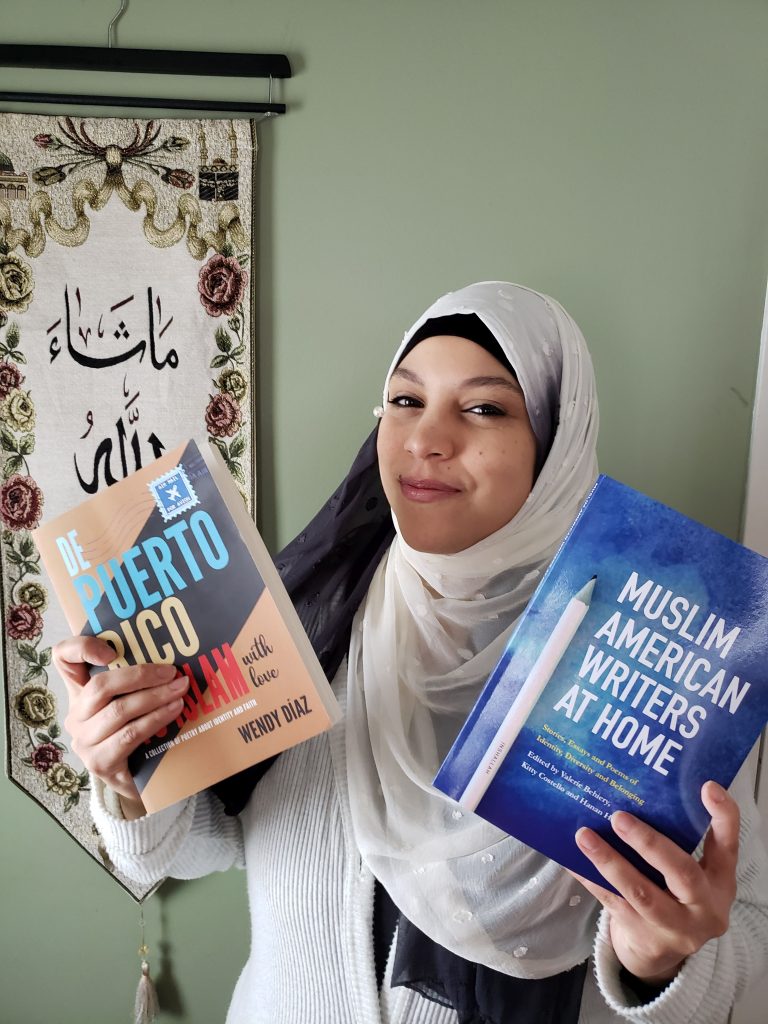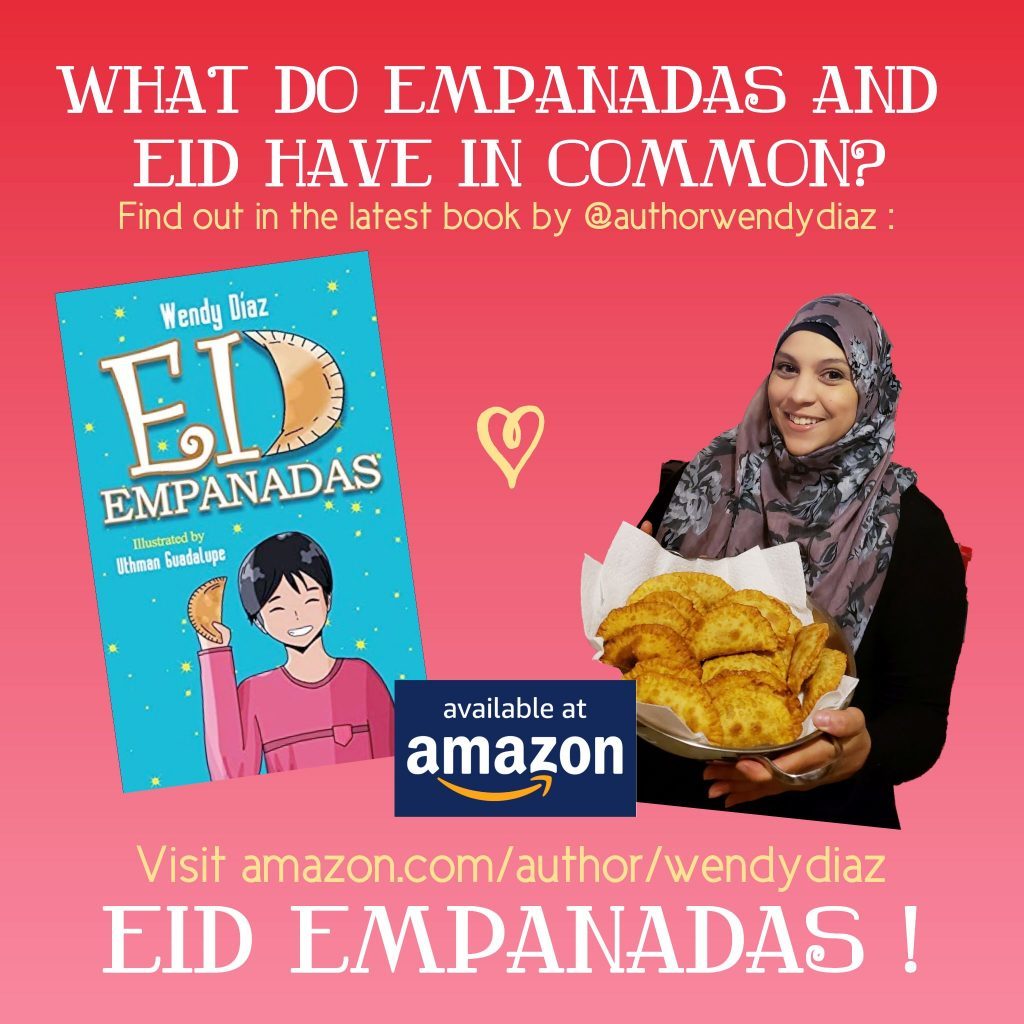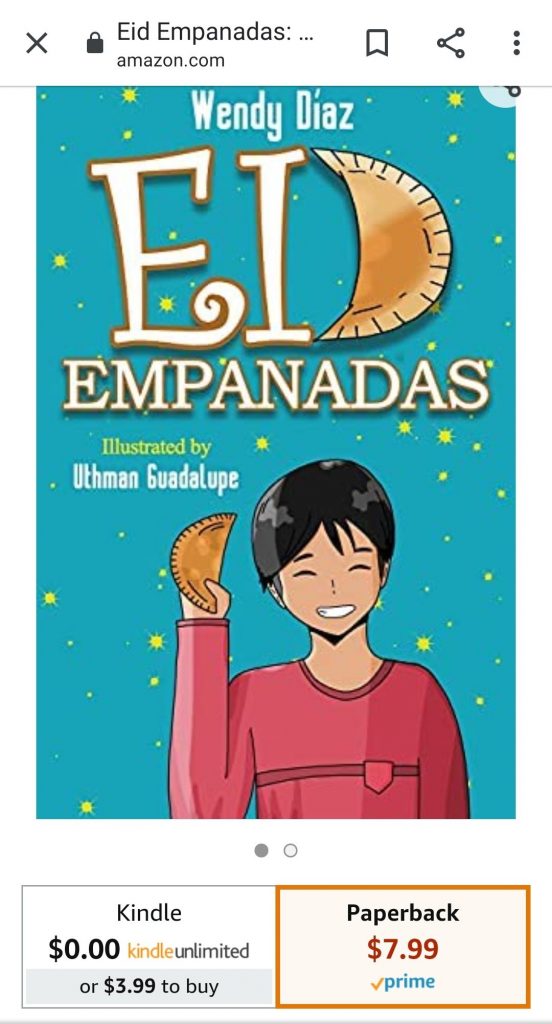Representation Matters: Islamic Books for Latino Children
By Wendy Díaz
May 8, 2021
Original link: Representation Matters: Islamic Books for Latino Children | About Islam
Fifteen years ago, my husband and I, both Latino converts to Islam, welcomed our first son to this world. Alhamdulillah, he was the first Muslim child born into our families, a blend of Puerto Rican and Ecuadorian heritages living here in the U.S.
His fitra, that innate faith in one Supreme Creator, was untainted unlike ours had been. He did not have to discover Islam later in life in his teens and twenties like his parents had.
We named him Uthman after the third Khalifa in Islam, the son-in-law of Prophet Muhammad, peace be upon him, bearer of the two lights. And so began our Muslim parenting journey, one that we are still striving to navigate efficiently as more and more challenges and blessings present themselves.
As convert parents, our objective is to raise righteous Muslims by Allah’s Will; as Latinos, we endeavor to preserve our culture within the confines of Islam. We learned early that despite what we heard from some well-intentioned Muslims, Islam did not come to take away our identity.
In fact, Islam is part of our rich history as Latinos – an inheritance left behind by our ancestors that has been buried and forgotten.
Unfortunately, this reality is one that has not been explored enough in contemporary circles of knowledge. Muslims from other parts of the world do not consider Latin America part of the Islamic narrative. Yet, as more of us return to Islam, we are unearthing this truth and we are eager to pass it on to our children with pride.

When we began searching for Islamic books and material to teach our first son in our native language, we were unsuccessful. However, as a mother who wanted to instill a love of reading in my child, I settled with purchasing books in English and translating them simultaneously as I read them to Spanish.
Soon I began reaching out to publishing companies that specialized in Islamic books and offered to translate their children’s books. After receiving no response or downright rejection because as they said, there was “no market for Spanish material,” I realized that if I wanted books for my children, I would have to create them.
Thankfully, I loved writing as much as I loved reading, but I knew from my experience with traditional Islamic publishers that it was unlikely my manuscripts would be accepted. My husband and I investigated self-publishing, and after investing our own capital, we published our first bilingual Islamic children’s book in 2010 called, A Veil and a Beard.
Other books followed, including a series on the Prophets, a book about Ramadan and one on Friday prayer, an artistic representation of the hadith of Gabriel for children, and others. We sought support from friends and family through our non-profit social project and dawah organization, Hablamos Islam, Inc.
Due to a high demand for these books all over Latin America, we were able to supply needy communities with Islamic children’s books in their own language in over a dozen countries.
Alhamdulillah, we also began creating children’s programming in Spanish on our YouTube channel, Hablamos Islam, that has been viewed in over 40 countries worldwide. Nevertheless, this was not enough.

After my first, then second, then third child entered school, I began to see another concerning trend. The three of them were the only Latino children in their Islamic schools.
As such, they experienced some alienation and bullying. My eldest was often taunted by his classmates, who called him Mexican and said he ate tacos, despite him telling them that he was half Puerto Rican, half Ecuadorian and tacos are not a staple of either country.
My second son’s teachers complained about his behavior and suggested that the reason for his troubles in class were due to him not having many Muslim relatives as role models (because we were converts). Their last name, Guadalupe, that is in fact, a blend of Arabic and Latin (Wadi – valley, al – the, and lupus – wolf) was always mispronounced and ridiculed. Despite bringing this up to the school’s administration, little was done to curb these occurrences and the misconceptions that fueled them.
At this point, I understood that it was not just Islamic books in Spanish that were missing for Latino children, but also Islamic books with Latino representation for all Muslims – children, parents, and educators included.
Latin-American Muslims needed to see themselves represented in Islamic literature and it was imperative that other Muslims accept them as part of the general Islamic community.
Later, when we moved and I was forced to put my children in public school, there emerged a need to also educate non-Muslims about my Latin American Muslim family. This is when the idea for my most recent books was born.
Since the beginning of 2020, I have published six important pieces of literature that represent our experiences as Latino Muslims here in the U.S., both inside and outside the Islamic community. They are:
De Puerto Rico to Islam With Love: A collection of poetry about identity and faith – A book of memoir and poetry detailing the events that led to my conversion to Islam and the aftermath of that decision.
The Secret of My Hijab (English and Spanish) – a children’s picture book reaction to the questions my daughter encountered in public school while wearing the Islamic veil.

The First Day of Ramadan/El primer día de Ramadán (second edition)– a bilingual children’s book that follows a Muslim family on their first Ramadan fast with a glossary of both English and Spanish vocabulary related to Ramadan.
Yo Hablo Islam/I Speak Islam – A Spanish-English dictionary for Muslim children to learn Spanish vocabulary, including terms related to their identity as Muslims.
Why Do Muslims… ? 25 Questions for Curious Kids – A Q&A children’s book with other 25 facts about Islam and Muslims with a Latino main character.
Eid Empanadas – A book celebrating the Ramadan and Eid traditions of a Latin-American Muslim family.
My mission is to be a voice for the underrepresented Latin American Muslim community, and especially for our children. Insha’Allah, I hope these books and more to come, will help us understand each other and be more welcoming to those we do not know.

After more than a decade of being involved in this work, my family and I are now beginning to see other authors and even publishing companies starting to work towards filling this gap of missing Spanish material and representation for Muslim children. For that, we are profoundly grateful.
However, there is still a lack of support for these important resources. I hope that you, my dear reader, will aid us in raising awareness for this cause by adding these books to your home library, discussing diversity within the Islamic community with your children or students, and sharing this article for others to benefit. May Allah reward you and may He bring back the unity in our commUNITY. Ameen!
About Wendy Díaz
Wendy Díaz is a Puerto Rican Muslim writer, poet, translator, and children’s book author. She is the Spanish content coordinator for ICNA-WhyIslam and a MuslimMatters columnist. She is also the co-founder of Hablamos Islam, a non-profit organization that produces educational resources about Islam in the Spanish language.
